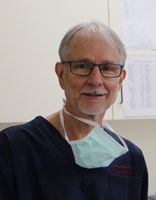Vitamin C: from scurvy to the common cold, and now sepsis and COVID-19
Mega-dose Vitamin C: a promising new treatment for sepsis?
-
Date: 24 MAY 2022 from 17:30 to 19:00
-
Event location: In presence and online event
-
Type: Lectures
Sepsis is a common life-threatening condition in which an excessive response to an infection can cause vital organ failure and in manycases death. Annually, about 50 million cases of sepsis are recorded globally and it accounts for 20% of world deaths. Although sepsis is most commonly caused by a bacterial infection, viruses can induce sepsis, and critically ill COVID-19 patients have avirally induced sepsis. There are no treatments to reverse sepsis-induced organ failure. We are investigating the use of antioxidants as a treatment to reduce the effects of sepsis-induced oxidative stress and organ failure. Vitamin C is a naturally occurring antioxidant. It was isolated and synthesised by the Nobel Prize winners Albert Szent-Györgyi and Walter Haworth in the 1930s. In the 1970s it was proposed as a cure for colds by the dual Nobel Prize winner Linus Pauling, although this use has not beensupported in subsequent studies. Extremely high doses of intravenous vitamin C have been given without side effects as an alternative cancer treatment, but such doses have not been used in critically ill patients. We examined the effects of mega-dose intravenous vitamin C (3.75g/7-h) in experimental sepsis. Blood pressure was normalised while vasopressor support was withdrawn, the function of vital organs recovered, and the clinical state and body temperature returned to normal. Following these positive results, a COVID-19 patient was treated with intravenous vitamin C (60 g), with improvements in blood pressure, organ function and body temperature. This treatment is being examined in a pilot trial in septic patients and, if safe and effective, higher doses will be used in a multi-centre randomised controlled trial. We hope mega-dose vitamin C will transform the treatment of sepsis and reduce its worldwide devastating effects.
To attend the lecture
-
In presence - Sala Rossa, Palazzo Marchesini, Via Marsala, 26 - Bologna
If you prefer to attend this lecture in presence, you should write to segreteria.isa@unibo.it within May 24th, 12 p.m. and book your place. The places will be assigned on “first come first served” basis.
PhD students and researchers who are interested may request an attendance certificate.
